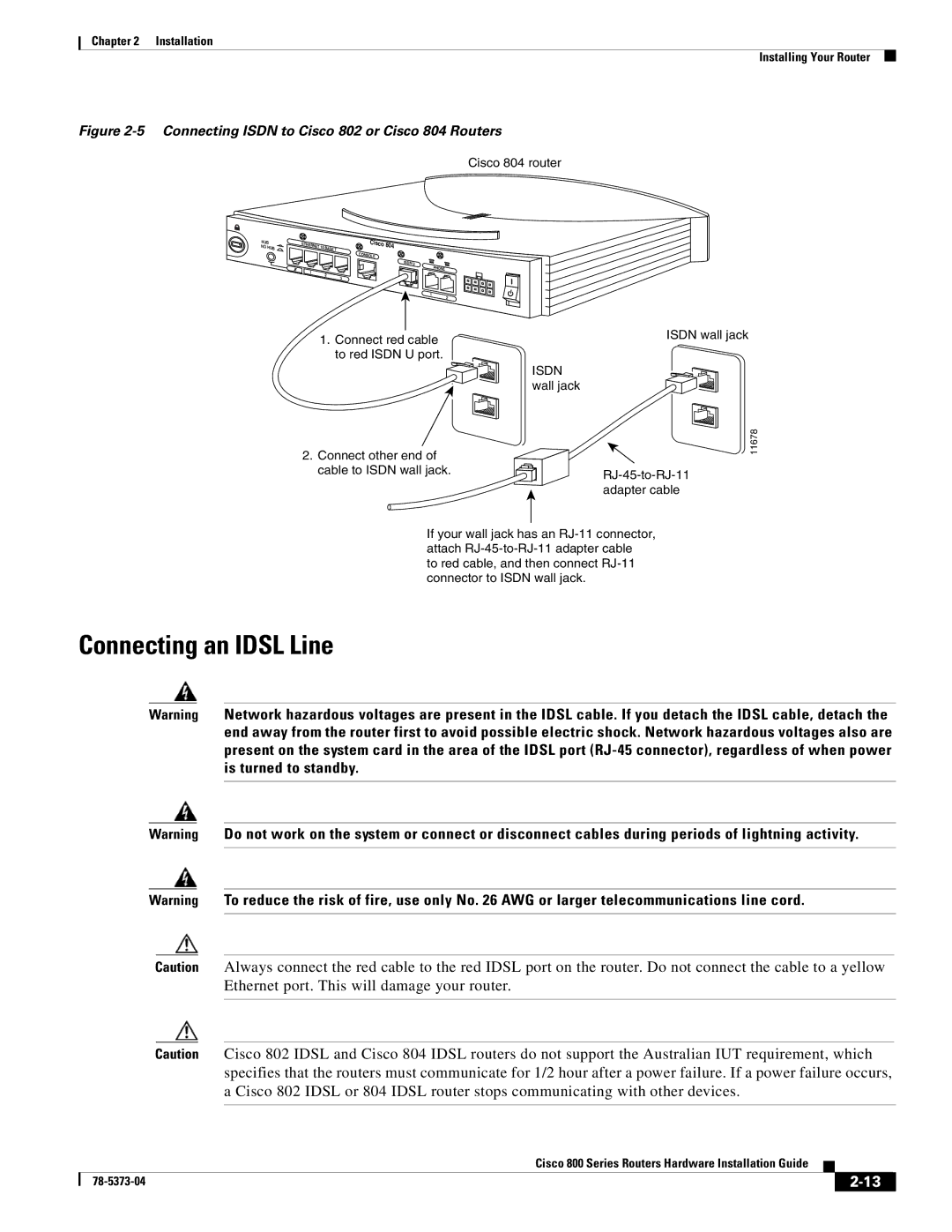
Chapter 2 Installation
Installing Your Router
Figure 2-5 Connecting ISDN to Cisco 802 or Cisco 804 Routers
Cisco 804 router
HUB NO HUB
ETHERNET 10 | Cisco | 804 | |
BASE T | |||
|
| ||
| CONSOLE |
| |
|
| ISDN U | |
0 |
| PHONE | |
1 | 2 |
| |
| 3 |
| |
|
| 1 | |
|
| 2 |
1. Connect red cable | ISDN wall jack |
| |
to red ISDN U port. |
|
| ISDN |
| wall jack |
2. Connect other end of | 11678 |
| |
cable to ISDN wall jack. | |
| |
| adapter cable |
If your wall jack has an
to red cable, and then connect
Connecting an IDSL Line
Warning Network hazardous voltages are present in the IDSL cable. If you detach the IDSL cable, detach the end away from the router first to avoid possible electric shock. Network hazardous voltages also are present on the system card in the area of the IDSL port
Warning Do not work on the system or connect or disconnect cables during periods of lightning activity.
Warning To reduce the risk of fire, use only No. 26 AWG or larger telecommunications line cord.
Caution Always connect the red cable to the red IDSL port on the router. Do not connect the cable to a yellow Ethernet port. This will damage your router.
Caution Cisco 802 IDSL and Cisco 804 IDSL routers do not support the Australian IUT requirement, which specifies that the routers must communicate for 1/2 hour after a power failure. If a power failure occurs, a Cisco 802 IDSL or 804 IDSL router stops communicating with other devices.
Cisco 800 Series Routers Hardware Installation Guide
|
| ||
|
|
